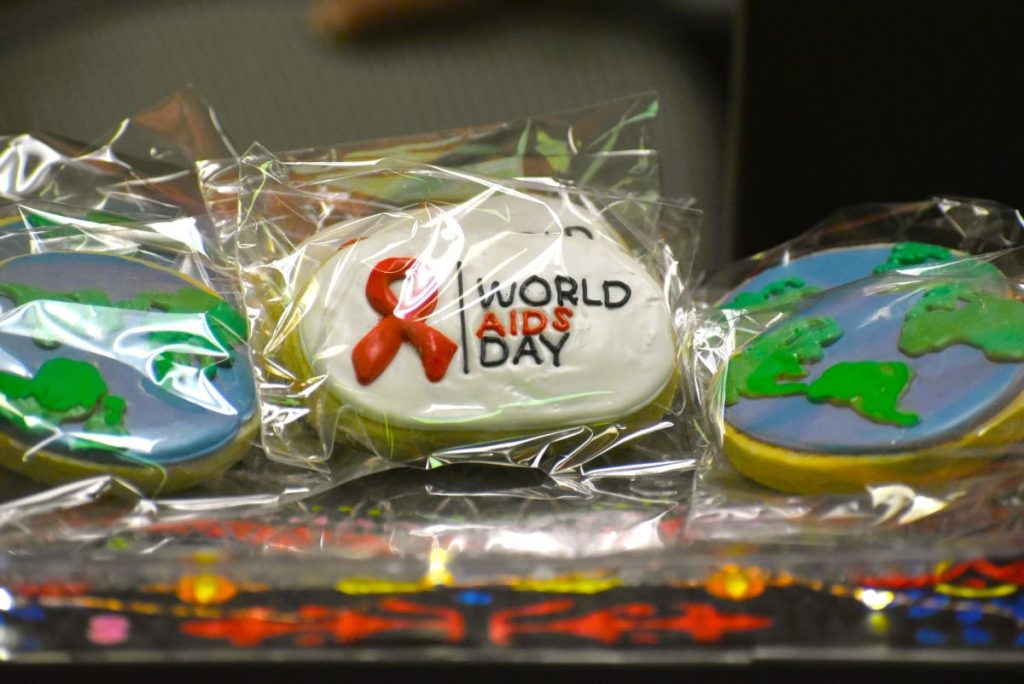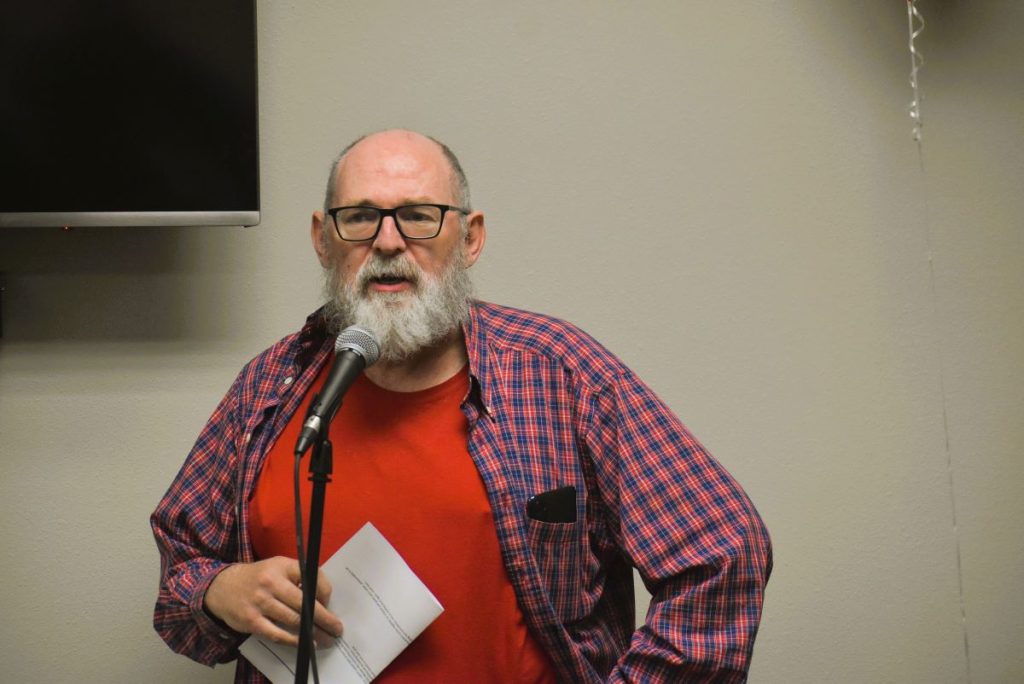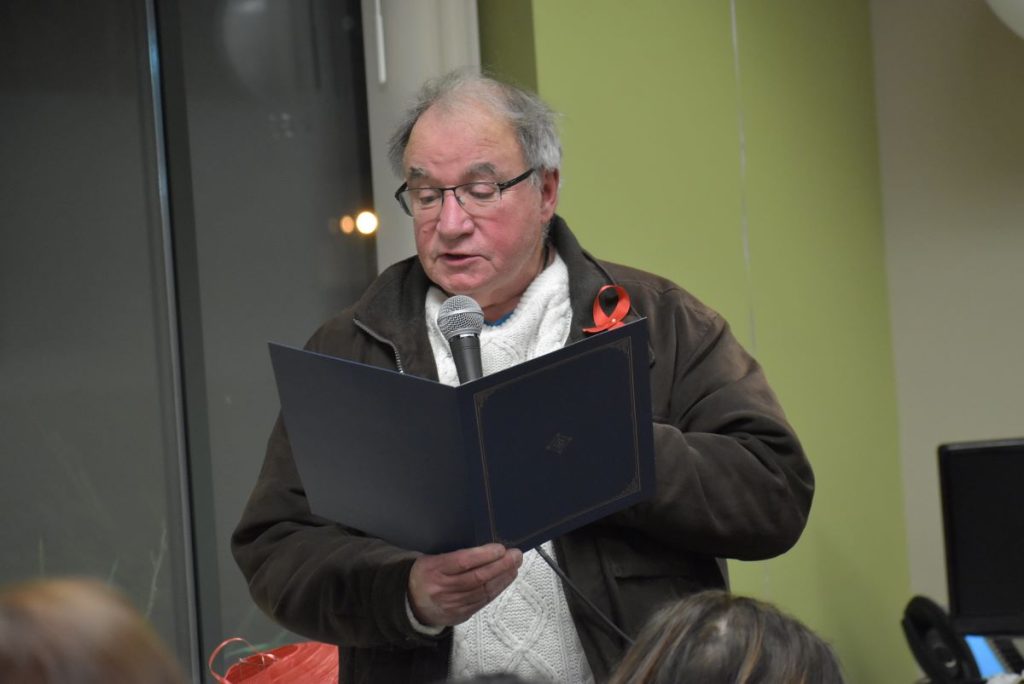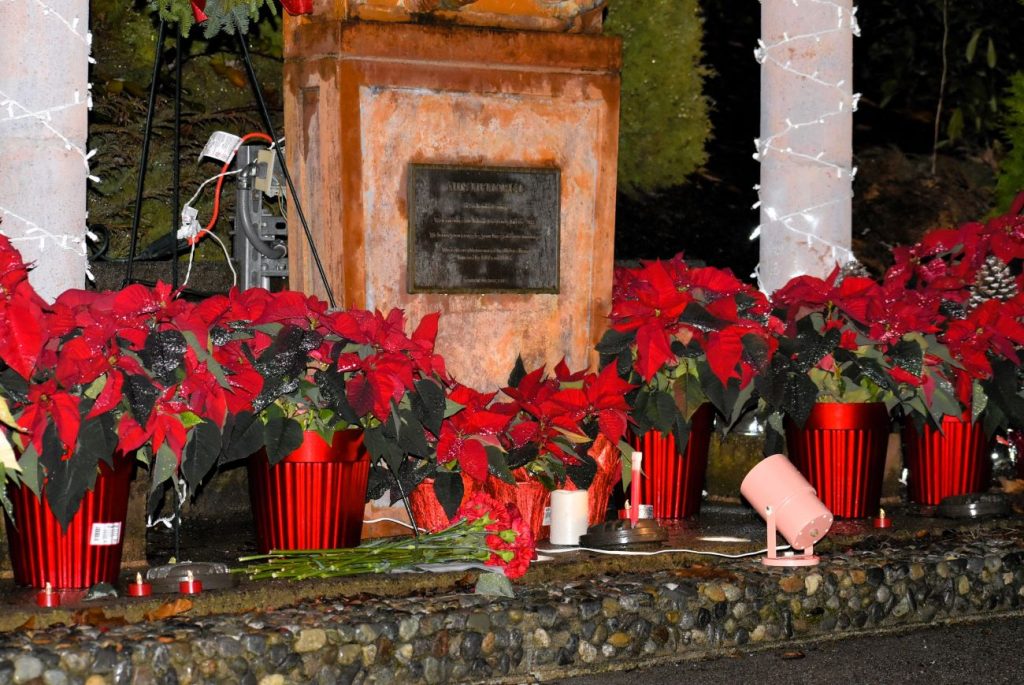EVERETT, Wash., December 6, 2023—A couple dozen community members gathered at Lifelong Everett on World AIDS Day’s 35th anniversary, December 1, to raise awareness about HIV and AIDS while honoring the lives that have been, and continue to be, affected by the epidemic.
The event featured refreshments, interactive activities, mingling, entertainment, personal stories about HIV, poems, and giveaways. Concluding the event attendees walked from the non-profit’s building at 3501 Colby Avenue to the County campus to visit the AIDS Memorial site on Pacific and Westmore Avenues.

A memorial resides in Everett at Plaza West of the Old Mission Building at Pacific and Wetmore avenues, that was dedicated on World AIDS Day in 2005 thanks to the combined efforts of volunteers, for those affected by HIV and AIDS. On December 1, the memorial was adorned with lights and decorations by the Everett Pride Board — one of the sponsors of the World AIDS Day event.

For James Ludwig, Everett Lifelong Program Manager, the work he does is personal. He lost his partner in 1988 to AIDS and he’s been working in the HIV field since 1990. Ludwig commenced the event by sharing a few words on his personal experiences and the work he does.
“It never ceases to amaze me to see the resiliency of the people who have HIV but still stand up and continue to live life,” said Ludwig.
The approximate caseload of Lifelong in Everett is around 480 Snohomish County residents and there are approximately 25 new HIV infections in the county every year.
Following Ludwig, Frank Busichio, President of the AIDS Project Snohomish County, read a proclamation signed by County Executive Dave Somers recognizing December 1 as World AIDS Day — the first time in the county’s history since World AIDS was first recognized in 1988.

Busichio then announced the AIDS Project Snohomish County will be returning its Friendship Meals in February, which offer a place for people living with HIV and AIDS, and their friends and family, to gather, find support, and connect with the community.

These monthly dinners were originally provided to the clients of HOPWA (Helpers of People with AIDS) with support from government funding. In 2008, a group of volunteers decided to keep this program alive once the funding faced heightened restrictions, no longer covering the costs of food. In 2012, AIDS Project Snohomish County began to cover the costs of these meals, with generous support from local organizations and businesses, offered in various locations but the dinners have been effectively suspended since the COVID-10 outbreak.
The meals will resume either the second or third Thursday of February, most likely held at Trinity Lutheran Church which once hosted meals. However, the details have yet to be solidified and Busichio said he’ll make a formal announcement in the future.
The mic was then open for personal testimony. The first to speak was a man named Dangma who shared that he moved to Everett from North Carolina “with a lot of baggage,” but through the services provided at Lifelong he has found a sense of community and support he never knew he needed.
“When I first came to Lifelong I didn’t realize I needed a lifeline but I’m here to tell you all thank you,” said Dangma. “Without your support I don’t know where I would be today.”
On December 1, 2023, the White House Office of National AIDS Policy (ONAP) released the 2022 NHAS Interim Action Report, highlighting work done by federal and community partners to energize and invigorate our nation’s collective national work to end the HIV epidemic and ensure that no population or region is left behind.
In his FY2024 budget proposal Joe President Biden requested $850 million to aggressively reduce new HIV cases by increasing access to HIV prevention, care, and treatment while supporting research initiatives implemented in the U.S. and worldwide. The budget included funding for domestic HIV activities across multiple agencies, a boost in funding for the EHE initiative, and proposals for a national PrEP delivery program to improve PrEP access for Medicaid beneficiaries.
New HIV infections in the U.S. have declined in recent years, after a period of general stability. Estimate annual new HIV infections were 12% lower in 2021 compared to 2017—dropping from about 36,500 infections to about 32,100.
Over the course of its 20 years, PEPFAR saved 25 million loves and enables 5.5 million babies to be born HIV-free to mothers living with HIV.

Author: Kienan Briscoe










